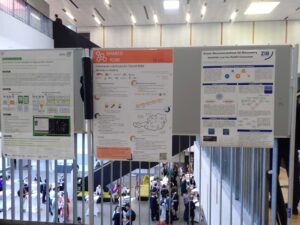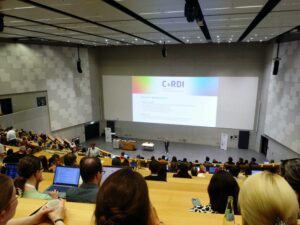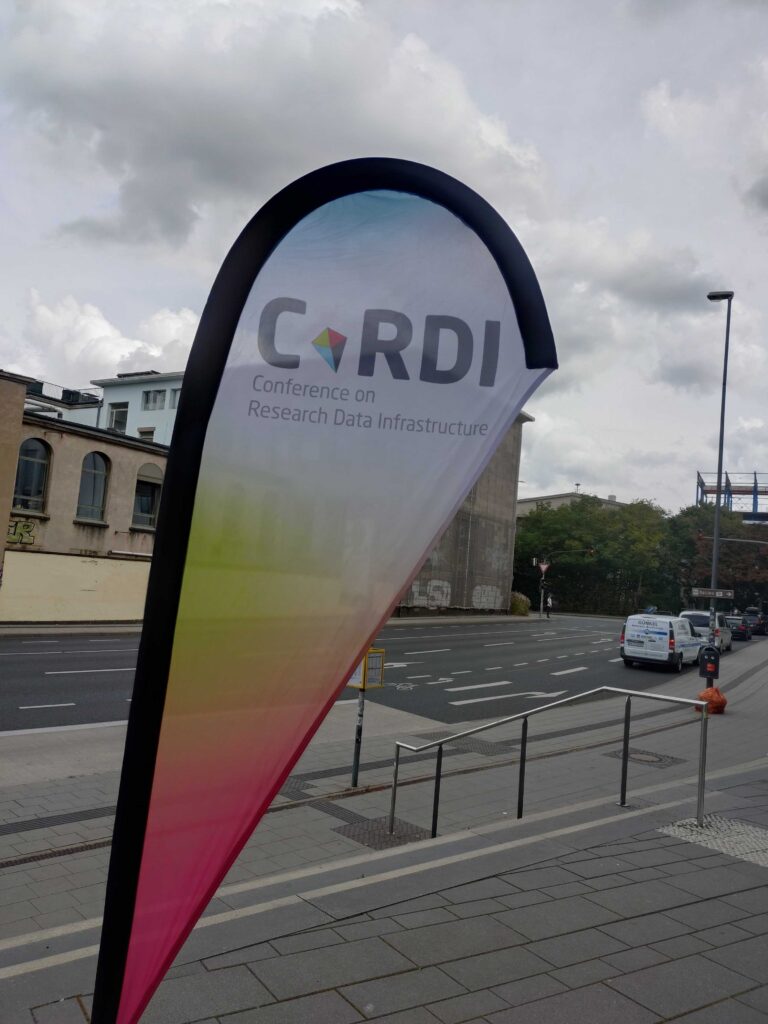The second edition of the Conference on Research Data Infrastructure (CoRDI) brought together national and international experts from August 26–28, 2025, in Aachen. Hosted at RWTH Aachen’s lecture hall centre C.A.R.L., the event showcased a wide-ranging programme of keynotes, lectures, poster sessions, and a market of opportunities, all united under the theme of generating more knowledge through the effective use of research data.
Shared RDM Services & Infrastructure had the honour of opening a sub session with a presentation on Framework Conditions for Shared Services in Austria. The talk drew strong interest from participants, highlighting how collaborative infrastructures and harmonized approaches can strengthen research data management (RDM) across institutions and disciplines. A complementary poster further illustrated how Shared RDM is laying the groundwork for a national ecosystem of shared services—balancing organizational, technical, and policy requirements. The analysis emphasized the importance of common standards, sustainable funding models, and governance frameworks to ensure accessibility and interoperability of research data. These insights sparked lively debate on how Austria’s experiences could inform cross-border collaboration across Europe.
CoRDI 2025 addressed a wide range of themes, including Education in RDM, Engineering Sciences, Life Sciences, Humanities and Social Sciences, Natural Sciences, RDM Infrastructure, and the societal impact of RDM. A panel on Digital Sovereignty added timely insights into the growing importance of control and independence in data infrastructures. Beyond the academic programme, participants also engaged in evening activities, including guided themed tours at the Werkzeugmaschinenlabor WZL, where robotics, automation technology, and next-generation product development were showcased in action.
CoRDI 2025 once again proved to be a valuable platform for exchange and collaboration. For Shared RDM, it was an opportunity to showcase Austrian perspectives and to contribute to the ongoing discussion on how research data infrastructures can best serve science and society.




